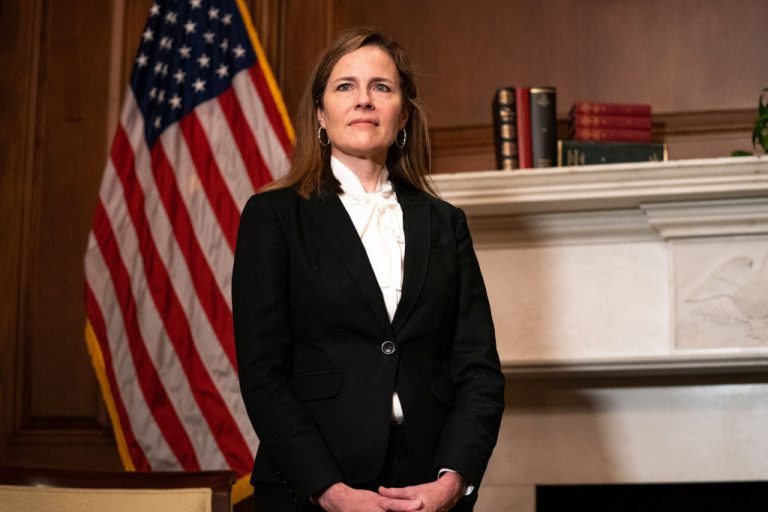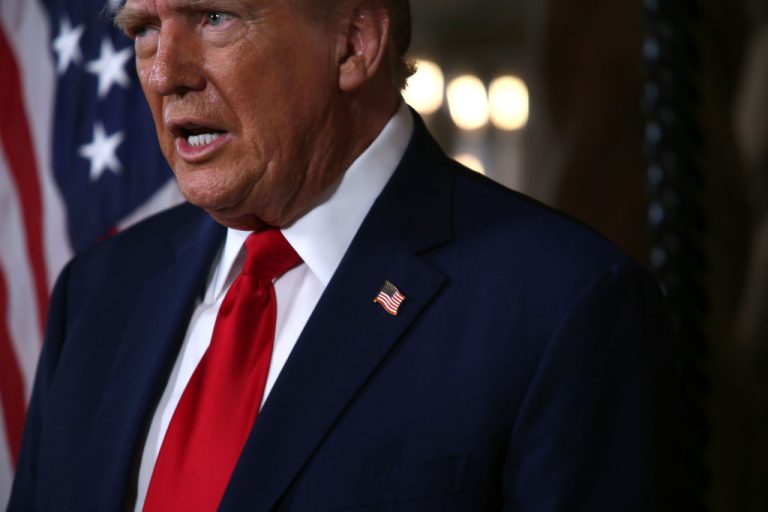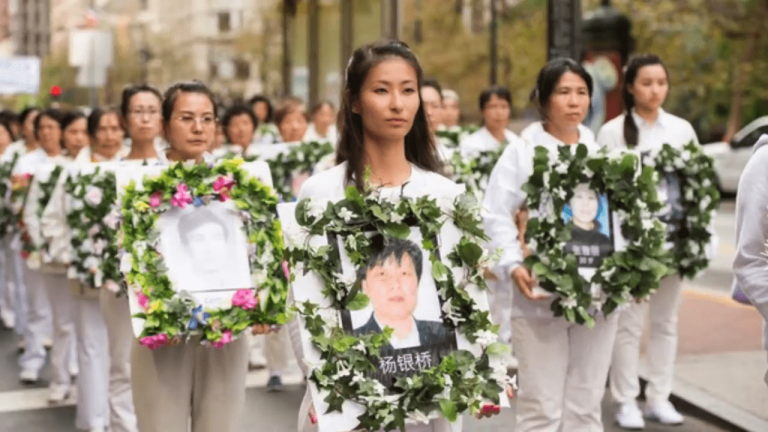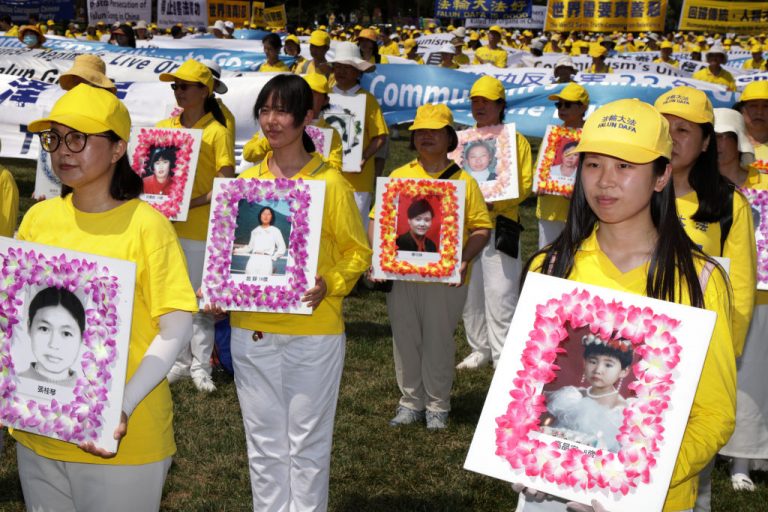Recently appointed Supreme Court justice Amy Coney Barrett on Aug. 12 declined a request to block Indiana University’s requirement that all students must get COVID-19 vaccinations by Aug. 23.
CNN Politics reported that Barrett’s move “marks the first time the justices have been asked to weigh in on the legality of a mandate that private and public entities increasingly believe will combat the spread of Covid-19.”
“The appeal arrived at the nation’s highest court as a growing number of employers, restaurants and schools, responding to a rise in COVID-19 cases driven by the delta variant, are requiring vaccinations. Slightly less than 40% of the country’s adult population is not fully vaccinated, according to the Centers for Disease Control and Prevention,” USA Today reported on Aug. 12.
READ MORE
Federal Agents Seize 3,000 Fake Vaccination Cards Made in China
5 Times More UK Children Died From Suicide Than COVID During Lockdowns
Success
You are now signed up for our newsletter
Success
Check your email to complete sign up
The request to lift the mandate came from a group of concerned Indiana University (IU) students, whose lawyer James Bopp filed an emergency petition with the Supreme Court. “IU is coercing students to give up their rights to bodily integrity, autonomy, and of medical treatment choice in exchange for the discretionary benefit of matriculating at IU,” Bopp stated.
Students at Indiana University who decline and receive exemption from full vaccination will have to be tested weekly for COVID-19 symptoms, with testing sites available at all the university’s statewide campuses. They will also have to wear masks.
Barrett made the decision alone, without consulting the rest of the court. CNN says that the action will open the door to establishing legal for similar mandates in future.
Bopp said the students’ refusal is based on legitimate concerns, such as health risks that come with the hastily developed vaccines, as well as the presence of underlying medical conditions among some students.
COVID vaccines were developed in a breakneck effort following the global spread of the SARS-CoV-2 virus from Wuhan, China in the early months of 2020. The vaccines’ efficacy has been spotty, and many around the world are wary of getting the jab due to its potential side effects.
The students, who filed their appeal in early August, argue that the Indiana University vaccination mandate is a violation of their constitutional right to bodily integrity, as guaranteed by the 14th Amendment.
However, the U.S. Court of Appeals for the 7th Circuit, based in Chicago, upheld the requirement on the precedent of a 1905 Supreme Court ruling that allowed the state of Massachusetts to penalize those who declined smallpox vaccinations.
“People who do not want to be vaccinated may go elsewhere,” 7th Circuit Judge Frank Easterbrook said in the decision.













